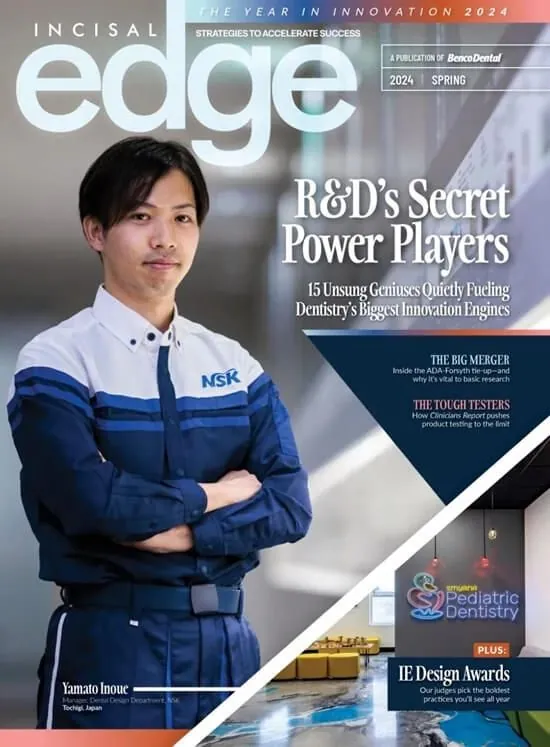ALEXANDER WÜNSCHE, CDT
Zirconia gets a bad rap, thanks to latenight infomercials and QVC exposure. But it might be the most important restoration material in the years ahead.
DENTISTRY MOVES QUICKLY. New materials mean new knowledge, and if you don’t keep up, you’ll surely be left holding the bag. If you want to pick the industry’s most exciting development over the last decade, you’re spoiled for choice, but for me the selection is easy: our increased use of zirconia. It’s a terrific material. It’s also persnickety, often difficult — almost temperamental, you might say.
Zirconium, the source element, is so strong it’s known as “white steel.” NASA even used it as the material for heat shields on the various Space Shuttles. For terrestrial dentists with more prosaic needs, however, it’s a wonderful replacement material for many metal-supported restorations. Each year brings further advances.
Consider first traditional zirconia, which is opaque and characteristically quite strong — known as “tetragonal zirconia” for its geometric composition. It’s difficult to color and will always reflect light to almost 100 percent. That’s why restorations made with it will be of such high value, even if the dental technician uses porcelain for layering.
Then there’s translucent zirconia, highly functional for just about anything you can imagine. It’s every bit as strong as opaque zirconia, but it doesn’t break light as much — hence its translucency. A dental professional who knows his or her way around this stuff can produce highly natural-looking restorations with good toothshade replication. With porcelain layered in the aesthetic areas, translucent zirconia works well for just about any kind of restoration.
The last 18 months have witnessed a breakthrough, though: “high-translucent,” or anterior, zirconia — so-called “cubical” zirconia. It’s a term that might put you in mind of diamonds and gemstones, albeit the kind sold on late-night TV. The famed cubic zirconia! It’ll outsparkle a diamond, but much more affordably. It’s close to diamond strength, too, and double its density. A remarkable material, really. Cubical is comparable to tetragonal in its permissiveness to light, but it’s not as strong, and therefore not for use in bridge spans longer than three units. With all this in mind, dentists can fabricate monolithic aesthetic restorations much more economically. At Zahntechnique CDL, my lab in Miami — Zahn is German for tooth — we’ve been able to deliver high predictability with zirconia in both alpha and beta tests.
In short, metal-free restorations are developing extremely fast in a number of ways. It’s obvious that the traditional PFM market is making way for all-ceramic restorations, particularly those of zirconia. This is due mainly to the kinds of zirconia discussed above, but also to the sub-choices each of these varieties offers as well.
Consider: We have white pre-sintered blanks available, so it’s possible to customize the coloring in extraordinary detail; pre-shaded blanks offer a more economical option. Or combine the two: We now have multilayered blanks as well. They all point the way forward to an extremely economical, consistent restoration with high aesthetic standards — a welter of choices through which zirconia might well become the most important dental material of the near (and perhaps more distant) future.
ALEXANDER WÜNSCHE, CDT is a dental technician. His company, Miami-based Zahntechnique CDL — which he operates with his wife, Danielle, an implant specialist — is a leader in digitally manufactured restorations.



